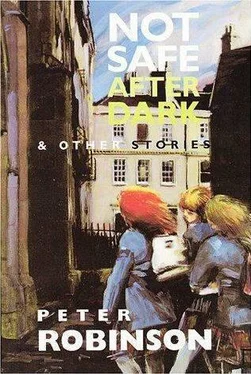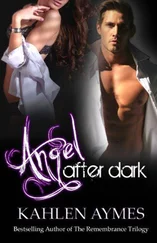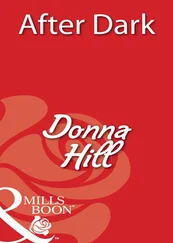Banks’s parents’ house stood near the western edge of the estate, close to the arterial road, across from an abandoned factory and a row of shops. Banks paused for a moment and took in the red-brick terrace houses – rows of five, each with a little garden, low wall and privet hedge. His family had moved here from the tiny, grim back-to-back when he was twelve, when the houses were new.
It was a Friday afternoon near the end of October, and Banks was home for the weekend of his parents’ golden wedding anniversary that Sunday, only his second overnight stay since he had left home at the age of eighteen to study business at London Polytechnic. When that didn’t work out, and when the sixties lost their allure in the early seventies, he joined the police. Since then, long hours, hard work, and his parents’ overt disapproval of his career choice had kept him away. Visiting home was always a bit of a trial, but they were his mother and father, Banks reminded himself; he owed them more than he could ever repay, he had certainly neglected them over the years, and he knew they loved him in their way. They weren’t getting any younger either.
He took a deep breath, opened the gate, walked up the path and knocked on the scratched red door, a little surprised by the loud music coming from the next house. He saw his mother approach through the frosted-glass pane. She opened the door, rubbed her hands together as if drying them and said, ‘Alan, lovely to see you. Come on in, love, come in.’
Banks dropped his overnight bag in the hall and followed his mother through to the living room. It stretched from the front of the house to the back, and the back area, next to the kitchen, was permanently laid out as a dining room. The wallpaper was a wispy brown autumn leaves pattern, the three-piece suite a matching brown velveteen, and a sentimental autumn landscape hung over the electric fire.
His father was sitting in his usual armchair, the one with the best straight-on view of the television. He didn’t get up, just grunted, ‘Son, nice of you to come.’
‘Hello, Dad. How are you doing?’
‘Mustn’t complain.’ Arthur Banks had been suffering from mild angina for years, ever since he’d been made redundant from the sheet-metal factory, and it seemed to get neither better nor worse as time went on. He took pills for the pain and didn’t even need an inhaler. Other than that, and the damage booze and fags had wreaked on his liver and lungs over the years, he had always been as fit as a fiddle. Hollow-chested and skinny, he still sported a head of thick dark hair with hardly a trace of grey. He wore it slicked back with lashings of Brylcreem.
Banks’s mother, Ida, plump and nervy, fussed a little more about how thin Banks was looking, then the kitchen door opened and a stranger walked into the room.
‘Kettle’s on, Mrs B. Now, who have we got here? Let me guess.’
‘This is our son, Geoff. We told you he was coming. For the party, like.’
‘So this is the lad who’s done so well for himself, is it? The Porsche and the mews house in South Kensington?’
‘No, that’s Roy, the other one. He’s not coming till Sunday afternoon. He’s got important business. No, this is our eldest, Alan. I’m sure I told you about him. The one in that picture.’
The photograph she pointed to, half-hidden by a pile of women’s magazines on one of the cabinet shelves, showed Banks at the age of sixteen, when he captained the school rugby team for a season. There he stood in his purple and yellow strip, holding the ball, looking proud. It was the only photograph of him they had ever put on display.
‘This is Geoff Salisbury,’ said Ida Banks. ‘Geoff lives up the street at number fifty-five.’
Geoff moved forward, hand stretched out like a weapon. He was a small, compact man, with lively, slightly watery eyes and cropped grey hair, about Banks’s age. His smile revealed what looked to Banks like a set of perfect false teeth. His handshake was firm, and his hands callused and ingrained with oil or grease from manual labour.
‘Pleased to meet you, Alan,’ he said. ‘I’d love to stay and chat, but I can’t just now.’ He turned to Banks’s mother. ‘Have you got that shopping list, Mrs B? I’ll be off to Asda now.’
‘Only if you’re sure it’s no trouble.’
‘Nothing’s too much trouble for you, you know that. Besides, I have to go there myself.’
Banks’s mother picked up her handbag, took out her purse and gave Geoffrey a handwritten list and a twenty-pound note. ‘Will that cover it?’
‘Easily, Mrs B. Easily. I’ll be back in a tick. Coach and Horses tonight, Arthur?’
‘Maybe. We’ll see how I feel,’ said Banks’s father. On closer examination, he did look tired and drawn, Banks thought. More than when he had last seen him in the summer. His eyes had the look of milky marbles and his skin was the colour of porridge. It could be the strain of preparing for the upcoming party – Arthur Banks, while gregarious enough in the pub, had never liked a house full of relatives – but most of the organization, Banks guessed, would have fallen to his mother. Perhaps it was simple old age catching up fast.
Geoff Salisbury left, and Banks saw him go up to the red Fiesta with the rusted chassis, parked behind Banks’s Renault. Geoff paused and looked Banks’s car over before getting into his own and driving off.
‘Who’s that?’ Banks asked his mother.
‘I told you. Geoff Salisbury. He’s a neighbour.’
‘He seems at home here.’
‘I don’t know what we’d do without him,’ said Mrs Banks. ‘He’s just like a son to us. Anyway, sit yourself down. Have a cuppa.’
Banks sat and his mother poured. ‘So Roy’s not coming till Sunday, then?’ he said.
‘No. He rang us last night, didn’t he, Arthur?’ She said it as if it were some momentous event. Arthur Banks nodded. ‘He’s got an important business meeting all day Saturday,’ she went on. ‘Something to do with some Yanks flying in, and they have to be back in New York by evening… I don’t know. Anyway, he says he should be here by Sunday lunchtime.’
‘Good of him to bother,’ Banks muttered.
His mother cast him a long-suffering glance. Banks knew she had been used to the brothers’ bickering when they both lived at home, and it was no surprise whose side she usually took. ‘What time are you planning on starting the party?’ Banks asked.
‘We told everyone to come about six o’clock. That’ll give us time to clear up and get things ready after lunch. By the way, I don’t suppose you’ve heard yet, but Mrs Summerville passed away.’ She announced it in the sort of soft and solemn tones generally reserved for those who had passed away .
‘I’m sorry to hear it,’ said Banks. Mrs Summerville was the mother of the first girl he had ever slept with, though he had always believed that neither the late Mrs Summerville nor his own mother knew that. ‘What did she die of?’
‘It wasn’t anything suspicious, if that’s what you’re thinking.’
‘Perish the thought.’
His mother studied him, frowning. ‘Yes… well, it was a blessing really. She’d been very poorly. Died in her sleep, according to Alice Green.’
‘Still-’ said Banks, uncertain what to say. He sipped some tea. As usual, it was milky and sweet, though he had stopped taking milk and sugar twenty years ago.
‘And how are the Marshalls?’ he asked. The Marshalls were the parents of Banks’s school friend Graham, who had disappeared at the age of fourteen and whose body had been discovered the previous summer. Banks had come down to help the locals work on the case and the solution hadn’t pleased anyone. It was during that time he had met Detective Inspector Michelle Hart, whom he had been seeing on and off ever since. Pity she wasn’t around this weekend, he thought.
Читать дальше










![Джеймс Чейз - Not Safe to Be Free [= The Case of the Strangled Starlet]](/books/417649/dzhejms-chejz-not-safe-to-be-free-the-case-of-the-thumb.webp)

